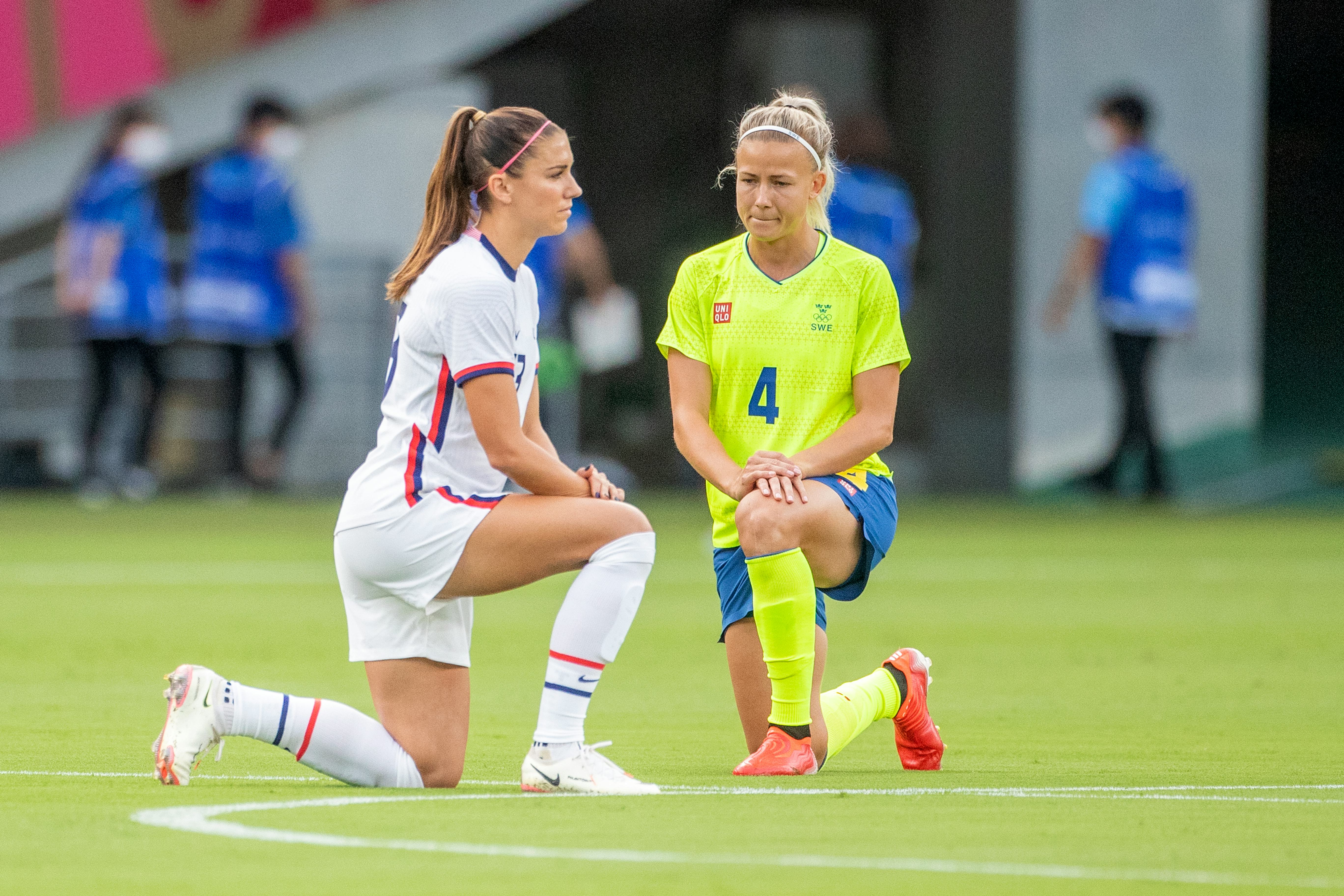
It's really strange that, 53 years after John Carlos and Tommy Smith raised their fists at the 1968 Olympics, athletes protesting racism is still a controversial subject. The Games relaxed its rules against activism this year, sort of, by allowing Olympians to demonstrate before competition begins. (Protesting at medal ceremonies will still be punished.) And on Wednesday, entire soccer teams did just that, taking a knee on the field during the first day of play — but the Olympics apparently decided to pretend it wasn't happening.
The Guardian reported that on Tuesday evening, the International Olympic Committee (IOC) and Tokyo 2020 organizers banned their social media teams from posting images of athlete protests, specifically mentioning Great Britain's women's soccer match against Chile the next day. Sure enough, both teams took a knee before the game; as did players from the United States, Sweden, and New Zealand. The Australian women linked arms and held their country's Indigenous flag. Images of player protest were broadcast on live TV and celebrated in the news — but none of the powerful photos made it onto the official Tokyo 2020 live blog, Twitter, Facebook, or Instagram. The Tokyo 2020 Instagram account alone has more than half a million followers.
It's a strange move to pretend athlete activism isn't happening in 2021. The Olympics expelled Carlos and Smith back in 1968, but now the IOC proudly celebrates their protest as an iconic moment in the history of the Games, The Guardian's insider source noted. But under current rules, competitors doing the same thing today — like hammer thrower Gwen Berry at the U.S. track and field trials — will face discipline.

Athletes using their platforms to oppose racism is far more widespread now than it was just five years ago, when former NFL player Colin Kaepernick knelt during the National Anthem and was treated like a pariah. By contrast, Steph Houghton, one of Great Britain's three Olympic team captains, said kneeling was a no-brainer supported by the whole team.
"We’ve been taking the knee in club and international matches, and we felt strongly as a group that we wanted to show support for those affected by discrimination and equality," she said after Wednesday's match, according to The Guardian. "It was a proud moment because the Chile players took the knee too to show how united we are as sport."
Soccer players from all over the world echoed that sentiment: "For us, it feels right to stand up for human rights," Swedish defender Amanda Ilestedt said after the match, CNN reported. "There was communication with the US team. It feels good to do that. It is something we stand for as a team."
The IOC appears to have realized it can't ignore all of the anti-racism solidarity likely to be displayed at the Tokyo 2020 Games. Perhaps they recognized their conspicuous conflict avoidance was actually amplifying the players' message. Anyhow, in an apparent change of heart, the IOC said on Thursday that the Olympics will post protest images on social and include them in press kits, according to Sports Illustrated. In mixed sports metaphors, the Tokyo 2020 organizers may have fumbled the relay baton with this gaffe, but they course-corrected, sailing on the winds of change to stick the landing.







